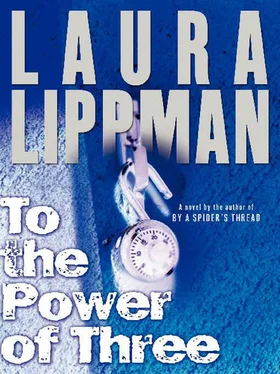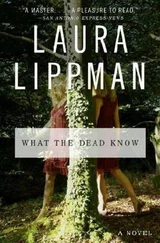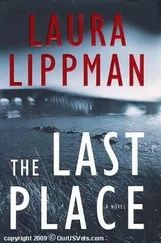The Patels had started a small fund when Josie was in third grade, but it had stayed small, in part because her mother had a bad habit of mentally assigning the fund various abstract savings without actually putting them there. “All the money we save by not sending Josie to private school can go to the fund,” she had said when they had moved to Glendale. But she had allocated those same savings to the kitchen renovation, and her Honda Accord, and the trip the family had taken to India when Josie was twelve, and the fees paid for Josie’s gymnastics lessons, not to mention Josie’s orthodontia. Meanwhile her brothers had come along, and they needed college funds, too, so the nonexistent savings were now divided by three. One didn’t need to be a math genius to know that zero divided by three kept ending up zero.
When Josie was thirteen, a stock adviser had done the math for her mom, explained the mysteries of compound interest, and said the boys still had a chance but only a high-risk strategy would work for Josie. He recommended that Mrs. Patel take out a second mortgage and invest that money. He pushed Josie’s mom toward telecommunication stocks, including WorldCom. For a brief, giddy period, it looked as if they would be okay. But it was very brief.
Josie still remembered the shock of finding out that all those headlines about people somewhere in Alabama actually affected her, that a corporation’s accounting fraud had dovetailed with her mother’s incompetence to deprive her of the funds for a college education. By junior year her fund had dwindled to three thousand dollars, barely enough to pay tuition for a single semester at the University of Maryland -and Josie did not have the grades to get into College Park. The chances for a National Merit Scholarship were long gone, not that Josie would have had much of a shot, even with a tutor, and the Patels earned too much for Josie to qualify for a needs-based scholarship. “On paper, ” her father said, his voice despairing, looking at how much they still owed on the second mortgage. “On paper, we’re very well-off.”
Forced to confront for the first time the financial sacrifices her parents had made over the years, Josie felt guilty and resentful. She had not asked to move to Glendale. It wasn’t her fault her teeth came in crooked. She had never wanted gymnastics lessons. Well, no, she had wanted those.
Even as Josie stewed, her mother schemed. Nothing motivated Susie Patel as much as Vik Patel’s disappointment. After researching Title IX scholarships and deciding that Josie was too late for lacrosse and too small for rowing, she had found out that College Park was offering athletic scholarships to cheerleaders . It was an odd kind of cheerleading, to be sure, in that the qualified students spent all their time competing while a different group of young men and women cheered for the UM Terrapins. (“Fear the turtle!” was the school’s well-known slogan.) The program was, in short, what Josie had always wanted-a chance to fly and soar on her own, no longer a sideshow to the main event but the event itself. Josie wasn’t crazy about staying in-state, but at least College Park was prestigious now, taking only the top Maryland graduates. No one had to know how close she had come to attending a truly crappy school.
She called to her mother, who was now puttering in the kitchen, “Do I have to, like, make a speech when they give it to me?”
“I don’t think so. Is that what’s bothering you? You’ve never minded being the center of attention.”
Josie thought of herself at the top of the pyramid, airborne in the night sky at football games, flying as Michael in Peter Pan . Yes, she had enjoyed the attention, but what she had really liked was the feeling that she had complete mastery over her body. It was the one thing she could always control.
“Not talking, though. I don’t like to talk in front of people.”
“Well, I’ll make sure you won’t have to talk. Just say thank you and get off.” Her mother returned to the sofa to rumple Josie’s curls. “You have the prettiest hair. I would have killed for hair like this when I was your age. I think I fell in love with your father because of this hair.”
“Mom.” It was far from the first time her mother had shared this anecdote, but it never ceased to embarrass Josie, this vision of her father not as her father but as a boy, someone with hair that a girl could love. And not just any girl, but her mother. She did not like to think of her parents that way. These images had made her adamant in her rejection of Grinnell College, although her double-legacy status might have secured her a place in a school that would otherwise be a huge reach for her. She did not want to walk where her parents had walked, sleep in the dorms where they had slept, much less daydream in the classrooms where her father had impressed teachers with his budding genius and her mother had beamed at him, happy just to bask in his glow.
“Wow, I think you got five syllables into that ‘Mom,’ a new personal best for you.”
This was Josie’s cue to say it again, holding the final syllable so it sounded like the “om” chant in a yoga class. But her heart wasn’t in it today.
“It’s expected, you know,” her mother said after realizing that Josie wasn’t up for their usual game. “Being sad. You might be sad for a long time.”
Like the rest of my life?
“It’s not just being…sad,” she said. “It’s…” But there was no way to finish the thought. She felt sad and guilty, yet resentful of the guilt, convinced she didn’t deserve it. None of this was her idea.
She picked up the remote control, began working her way up and down the channels again. Her parents had only basic cable, so there wasn’t as much to see as there had been at Kat’s, for example, where the Hartigans had all the movie channels, ten for HBO alone. Perri’s parents didn’t even have cable, and they limited their children’s “screen time,” as they called it, which had just made Perri crazed on the subject, plopping in front of Kat’s set for hours at a time, surrendering her vivid imagination to much lesser ones. Kat and Josie had to flatter her outrageously to get her away from the television, but Perri had grown out of it. Eventually. That was the way it was with Perri. Her manias were like the flu bugs that knocked her flat every winter. You just had to let them run their course.
Josie preferred the local stations anyway, with their cheesy ads for cars and copiers and insurance. This time of day, these channels were filled with shows about judges-sarcastic, adamant, bossy judges, who cut so quickly to the heart of the matter, making questions of right and wrong look so simple. You-pay the rent. You-fix his car. You-replace the dress. The gavel banged and the losers bitched once outside the courtroom, but the judge’s decisions were final.
Dannon Estes could tellhe made the detectives uncomfortable. Some people have gaydar, but Dannon had gay- hating -dar. Not that these guys were haters. Their reactions were more subtle than that. The younger one, who reminded Dannon of Alec Baldwin-circa Married to the Mob, moving through that hot-tub mist, back before he had gone totally to seed-had the general air of bafflement common to the hyperhets. What? You don’t like tits? You don’t like pussy? What’s that about?
The older guy, the fatherly one-now, he was the type who felt sorry for Dannon. His stepfather had much the same air when he was forced to spend time with him, as if Dannon were missing a limb or something. Disabled, or differently abled, as Glendale students were encouraged to say.
Then again, Dannon had made a point of informing these police officers he was gay, singing it out loud and proud. He couldn’t really blame them for being focused on it, given that it was the first thing he had told them about himself.
Читать дальше












